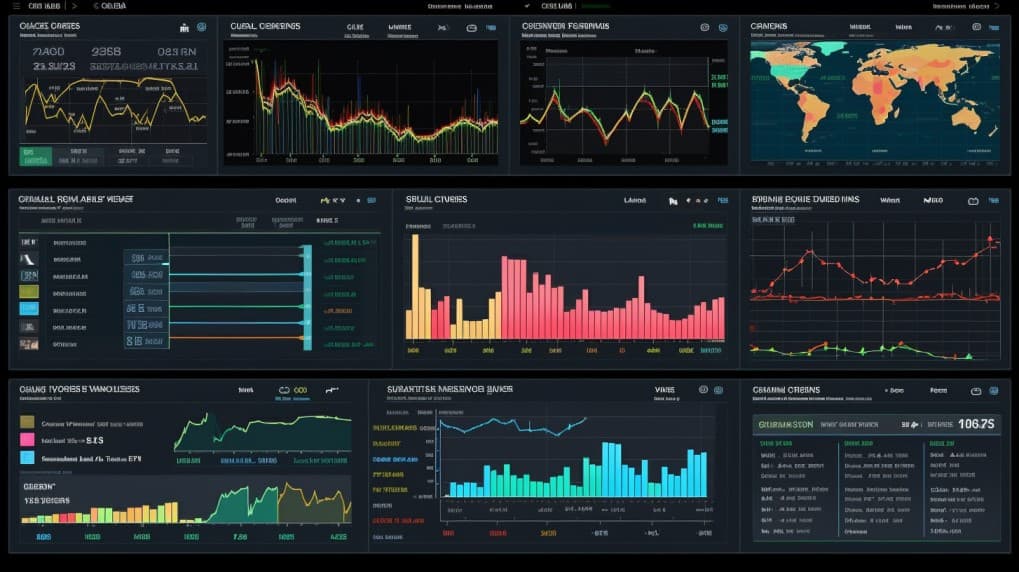
AGG VS IJH: A Comparison of ETFs
AGG Vs IJH: Overview
When considering a diversified investment strategy, exchange-traded funds (ETFs) are often at the forefront of the discussion. Among the many options available, two notable ETFs are AGG (iShares Core U.S. Aggregate Bond ETF) and IJH (iShares Core S&P Mid-Cap ETF). AGG primarily focuses on the bond market, whereas IJH aims at mid-cap stocks. Understanding the fundamental differences between AGG and IJH can help investors make a more informed decision.
AGG Vs IJH: Sectors and Top Holdings
AGG is an attractive option for those who prefer lower-risk investments. It consists mostly of U.S. government bonds and mortgage-backed securities. The ETF is well-diversified across various sectors of the fixed-income market. In contrast, IJH focuses on mid-cap companies, which offer a mix of growth and stability. The ETF is exposed to a wide array of sectors including healthcare, technology, and consumer discretionary. Knowing where each ETF allocates its holdings can significantly affect your investment goals.
 AGG overlap AGG VS IJH: A Comprehensive Comparison of ETFs
AGG overlap AGG VS IJH: A Comprehensive Comparison of ETFs
AGG Vs IJH: Capitalization Strategy
AGG aims to track the investment results of the Bloomberg Barclays U.S. Aggregate Bond Index. As a result, it is highly weighted toward government and corporate bonds, featuring a capitalization strategy that prioritizes stability and income. On the other side, IJH tracks the S&P MidCap 400, offering a balanced risk-reward ratio. This ETF leans toward companies with market capitalizations between $1 billion and $8 billion, effectively bridging the gap between small-cap and large-cap investments. Understanding the capitalization strategy of these ETFs is crucial when deciding which fits better with your financial aspirations.
AGG Vs IJH: Tracking and Exposure
The effectiveness of an ETF is often gauged by how closely it tracks its benchmark index. In the case of AGG, the fund closely follows the Bloomberg Barclays U.S. Aggregate Bond Index, offering investors broad exposure to the U.S. bond market. Similarly, IJH effectively tracks the S&P MidCap 400, granting access to a segment of the market known for its growth potential balanced with stability. Both ETFs have proven track records, but the type of exposure they provide is drastically different — one offers secure but modest gains, while the other provides the potential for significant growth albeit with higher volatility.
Conclusion
Choosing between AGG and IJH boils down to your investment goals, risk tolerance, and market outlook. AGG offers a more conservative investment route with steady income, ideal for those who are risk-averse or nearing retirement. IJH, on the other hand, offers higher growth potential, making it suitable for investors willing to assume a moderate level of risk for better returns.
Both ETFs have their pros and cons, and understanding these can significantly impact your investment portfolio. By comparing AGG Vs IJH on various aspects like sectors, capitalization strategy, and tracking effectiveness, you can better align your investments with your long-term financial objectives.
AGG Issuer
The iShares Core U.S. Aggregate Bond ETF (AGG) is managed by BlackRock, one of the world's largest asset management firms. BlackRock specializes in fixed-income investments and has a long-standing reputation for offering a range of products that are both accessible and reliable.
IJH Issuer
The iShares Core S&P Mid-Cap ETF (IJH) is also managed by BlackRock. The firm leverages its vast resources and expertise in equity markets to offer a range of products that can help investors diversify their portfolios and achieve various financial goals.
AGG ETF issuer
AGG ETF official page
AGG quote and analysis
Discover the top holdings, correlations, and overlaps of ETFs using our visualization tool.
Our app allows you to build and track your portfolio.
To learn more about the AGG iShares Core U.S. Aggregate Bond ETF, access our dedicated page now.





